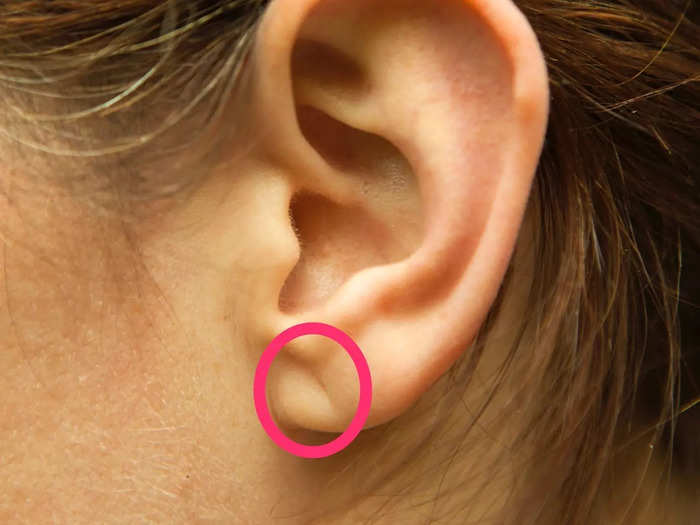Sudden changes in income in early adulthood has been linked to heart problems down the line.Crystal Cox/Business Insider
- High blood pressure, diet, and smoking, though well-known, aren't the only heart disease risk factors.
- Your marital status and quality of your relationships can impact your heart health.
Genetics, poor diet, and a lack of exercise are the classic risk factors for heart disease, but they only scratch the surface of ways you might be unknowingly harming your ticker.
Dr. Jim Liu, a cardiologist at The Ohio State University Wexner Medical Center, told Insider though high blood pressure and diabetes are the most common risk factors, a person's sleep schedule, demographics, and even how many friends they have might be factoring into their heart disease risk.
Heart disease, the leading cause of death in the US, encompasses a range of problems including irregular heartbeat, heart attacks, heart defects, and damage to the function of your heart.
"The most common risks we think of are high blood pressure, high cholesterol, diabetes, smoking, but there can be some other ones that people don't think of," Liu told Insider.
Here are 7 lesser known habits and factors that might be putting you at a greater risk for heart disease.
Vaping or smoking e-cigarettes can be just as dangerous as regular cigarettes.
Vaping everyday might double your risk for a heart attack. Eva Hambach/Getty Images
Liu said many people, particularly if they're young, might not be aware of how vaping can be just as harmful for your heart health as smoking.
According to the American Heart Association the "use of inhaled nicotine delivery products, which includes traditional cigarettes, e-cigarettes and vaping, is the leading cause of preventable death in the U.S., including about a third of all deaths from heart disease."
Though Liu said there is less data on the effects of vaping compared to cigarettes, a 2018 study out of the University of California, San Francisco suggests vaping everyday could double your risk for a heart attack.
Your race and ethnicity might indicate whether you're at a higher risk for heart disease.
Black and South Asian Americans might be at a higher risk for developing heart disease. Getty Images
Your race or ethnicity might be a factor in whether you develop heart problems, Liu said.
Black adults are more than twice as likely to die from cardiovascular disease, according to the American Heart Association. The trend likely isn't due to race itself, according to Northwestern University, but due to socioeconomic and lifestyle differences.
South Asian Americans are also at a higher risk for heart disease and hypertension, or high blood pressure, and scientists are still trying to understand why. South Asians make up a quarter of the world's population, yet 60% of all heart disease patients. One cardiologist who has studied this topic told Insider South Asians get heart disease at younger ages compared to white people.
Keeping toxic friends around might be bad for your physical health.
Even thinking of a bad friend could raise your blood pressure, according to one neuroscientist. Getty Images
Liu said a strong social network benefits your heart. Loneliness, or even keeping around negative people, does the opposite, research suggests.
Some research suggests bad friends are putting your heart at risk, like a 2015 study on older adults that found negative or competitive friendships put them at risk for hypertension.
One psychology and neuroscience professor at Brigham Young University told The Guardian her research suggested negative friendships were associated with stress, and just the thought of the person was enough to elevate heart rate and blood pressure.
The world's oldest person even credits some of her long lifespan to "staying away from toxic people."
Being single, divorced, or widowed puts you at a greater risk for heart disease.
Single people have a 42% higher risk of cardiovascular disease according to one analysis. Maskot/Getty Images
Toxic relationships might be bad for your heart, but so is not being in any relationship at all.
A 2018 analysis of 34 existing studies on cardiovascular diseases between 1963 to 2015, which included the data of two million people aged between 42 and 77 from across the world, found that single people were 1.4 times more likely to develop cardiovascular disease.
If your earlobe is "creased," or bent at a 45 degree angle, you might be at a greater risk for heart problems.
An earlobe crease is a diagonal fold on the lobe. MagMos/Getty Images
A diagonal earlobe crease where your earrings go — also referred to as Frank's sign — has been used as a potential indicator for coronary artery disease (CAD) since the 1970s, Insider previously reported.
The peculiar earlobe shape could indicate a lack of blood supply to some parts of your body, which is a sign of CAD.
Though some doctors recommend getting your heart checked if you have an earlobe crease, research on its association to CAD is mixed. One large and often-cited study from 2006 involving more than 500 autopsy cases, earlobe creases were found to predict CAD about 80% of the time for people below 40 years old, but a 2021 systemic review found the accuracy to detect chronic coronary syndromes from the ear shape remains insufficient.
Working night shifts or irregular schedules might worsen your heart health.
The quality of your sleep is just as important for heart health as how many hours you sleep. Getty Images
Irregular sleep schedules due to working night shifts might increase your heart disease risk, Liu said.
Research has consistently shown a relationship between a lack of sleep and high blood pressure and heart disease, but newer studies show the quality of your slumber matters just as much as the hours you're snoozing.
For instance, poor sleep that results in taking too many naps in the middle of the day was linked to high blood pressure and stroke in a recent study published in the journal Hypertension.
Frequently working night shifts and sleeping too much or too little during the day were at a greater risk for higher risk for cardiovascular disease in a study published in the Journal of the American Heart Association.
Sudden changes in your income could cause heart problems down the line.
Income volatility in early adulthood has been linked to a higher risk for heart disease. Getty images/ skaman306
A sudden layoff or drop in your income in young adulthood might impact your heart health down the line.
A 2019 study in the American Heart Association's journal Circulation found fluctuation in personal incomes were associated with nearly double the risk of death and more than double the risk for cardiovascular diseases. Women and Black Americans were more likely to experience income volatility.
Living in poverty or struggling to pay your bills is already associated with a higher risk for heart disease. Even teenagers from low-income families are more likely to have a higher risk for heart disease compared to their affluent peers.







